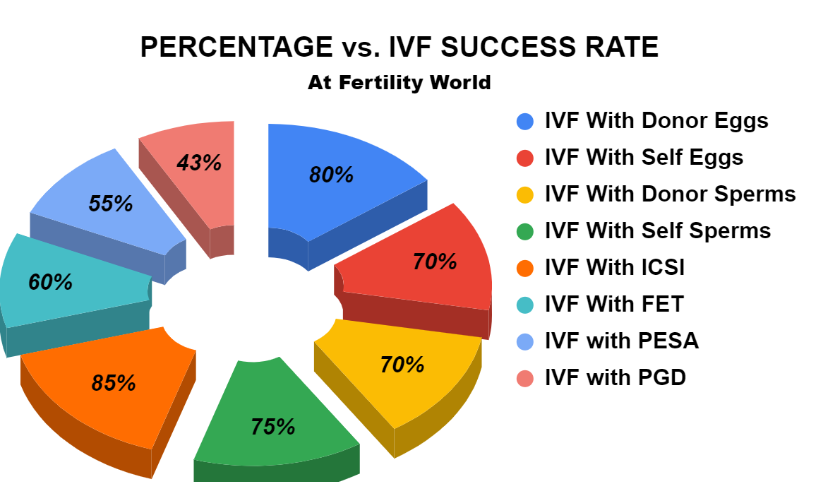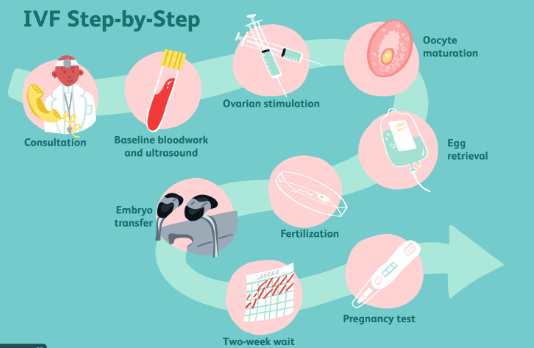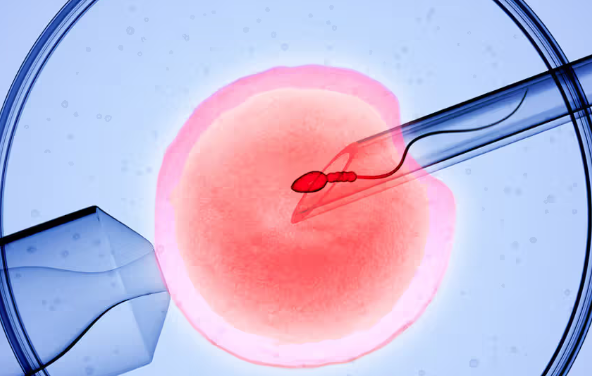In Vitro Fertilization (IVF) has become a ray of hope for couples struggling with infertility, offering them the chance to fulfill their dreams of parenthood. However, one of the critical factors that concern many is the cost associated with IVF treatment. In India, IVF treatment costing can vary significantly, and success rates are equally important to consider. In this article, we will explore the costing and success rates of IVF treatment in India.
IVF Costing in India
The cost of IVF treatment in India varies based on several factors, including the clinic’s location, the experience of the medical team, and the patient’s specific needs. Fertility Dost reports that IVF in India typically ranges from Rs 60,000 to Rs 80,000, which includes medication expenses. However, many couples find themselves spending over Rs 5 lakh on IVF treatment due to the necessity for multiple cycles.
Select IVF suggests that the basic or average cost of IVF in India is approximately Rs 1,75,000, but this can increase significantly, reaching up to Rs 4,00,000 depending on the complexity of the infertility case.
As of 2023, crystaivf.com estimates the average costing of IVF treatment in India to be around INR 80,000 to 3,00,000. It’s essential to keep in mind that these are approximate costs, and the final price can vary significantly depending on individual circumstances. For precise cost information, it is advisable to consult with a healthcare provider or a fertility specialist.
Success Rates of IVF in India
The success of IVF treatment in India depends on several factors. With including the age of the woman undergoing the treatment. The type of IVF procedure, and the number of attempts. According to Nova IVF Fertility, the success rate of IVF in India. Typically falls within the range of 30% to 35%.
The Indian Society of Assisted Reproduction (ISAR) presents evidence suggesting that the overall success rate of IVF in India is approximately between 40% and 45%. However, it’s crucial to understand that IVF success is not guaranteed for every couple. Success rates can vary from one clinic to another, depending on factors such as the patient’s age, the number of attempts, and more.
Recommended IVF Clinics in India
If you are considering IVF treatment in India, here are some well-regarded clinics to explore:
- Select IVF India (Delhi): Known for its state-of-the-art facilities and experienced medical team, this clinic offers a range of fertility treatments, including IVF, ICSI, and IUI.
- ART Fertility Clinics (Mumbai): A single-specialty fertility clinic that employs advanced ART techniques to address infertility issues.
- India Fertility Clinic (Jabalpur, Madhya Pradesh): This clinic specializes in affordable treatment for infertility and related conditions, with a dedicated team of experts.
These are just a few examples of the many excellent IVF clinics in India. It’s recommended to consult with a medical professional or fertility specialist for personalized guidance and to determine the best clinic for your specific needs.
Duration of an IVF Cycle
The length of an IVF cycle can vary based on several factors. Typically, an IVF cycle lasts approximately two weeks, from the start of injections to the egg retrieval. A fresh embryo transfer can occur around five days after the retrieval, while a frozen embryo transfer may take place no earlier than four weeks after retrieval. On average, the entire IVF cycle can span from 6 to 8 weeks, although individual circumstances can extend it to up to 4 months.
Risks of IVF
While IVF is a safe and effective fertility treatment, it does come with some potential risks:
- Multiple Pregnancies: If more than one embryo is placed in the uterus, it can lead to a multiple pregnancy.
- Ovarian Hyperstimulation Syndrome (OHSS): This condition can occur due to the use of fertility drugs and may result in swollen and painful ovaries.
- Ectopic Pregnancy: In rare cases, the fertilized egg may implant outside the uterus, typically in the fallopian tube.
- Birth Defects: Some studies have suggested a slightly higher risk of birth defects in children conceived through IVF.
- Stress: The emotional and financial aspects of IVF treatment can be challenging, and support from counselors, family, and friends is essential.
Conclusion
IVF is a significant advancement in the field of reproductive medicine, offering hope to couples struggling with infertility. While costs and success rates can vary, it’s essential to research and consult with experts to make informed decisions about IVF treatment in India. Always seek guidance from experienced medical professionals to address your unique needs and concerns.







